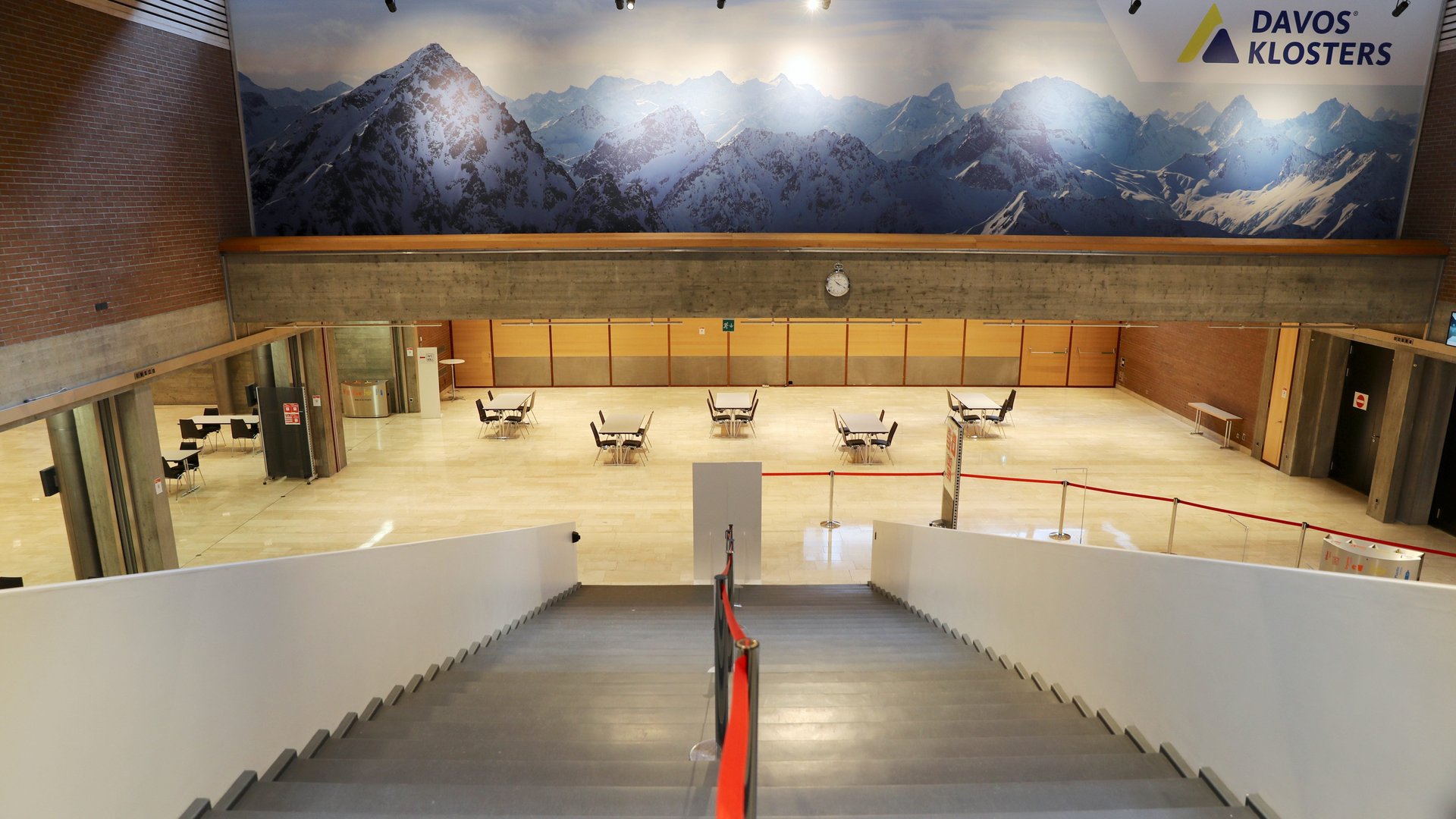What to expect from a virtual “Davos”
This time last year, world and business leaders hobnobbed in Davos as the first Covid-19 cases started to pop up outside China. This week, the World Economic Forum reprises its annual meeting, albeit in a very different form.


This time last year, world and business leaders hobnobbed in Davos as the first Covid-19 cases started to pop up outside China. This week, the World Economic Forum reprises its annual meeting, albeit in a very different form.
The exclusive gathering, which kicks off Jan. 24 with a global concert, will be virtual. Davos regulars like Angela Merkel and Bill Gates will check in from around the world.
The agenda, too, has been shaped by the pandemic: it is organized around “The Great Reset,” WEF’s effort to rethink the global economy post-Covid 19. “The purpose of this week is to take stock, to look at the state of the world, to exchange visions and ideas, and to show directions,” said Klaus Schwab, WEF’s chairman, at a press conference ahead of the meeting.
While the conference will feature its usual roster of high-flying speakers—among them Xi Jinping, who will give a keynote on Monday—this year’s format will be more open and egalitarian, WEF has promised. At the very least, attendees don’t have to worry about being excluded from wild after parties or stuck at the bottom of the organization’s elaborate hierarchy.
Other panelists include the UN secretary-general António Guterres, the European Central Bank’s Christine Lagarde, and Anthony Fauci, director of the US National Institute of Allergy and Infectious Diseases. Cyril Ramaphosea, president of South Africa, will give a speech on Tuesday; India’s Narendra Modi, prime minister Yoshihide Suga of Japan, and South Korea’s president Moon Jae-in, will also participate.
Among the topics they will discuss are the climate crisis, the need for a new social contract, global cooperation, and stakeholder capitalism, a cause close to Schwab that he intends to hammer again this year. (You can see the full agenda here.)
But some critics point out that in the past Davos talk of change has not led to much actual change. “Calls for action have been coming from business leaders at Davos and elsewhere for years,” Jonathan Michie, University of Oxford professor, wrote in The Conversation. “The hope is that this time, the scale of the emergency will finally make radical change unavoidable.”
And there are things that won’t change anytime soon. The Davos crowd hopes to get its chance to mingle in an exclusive setting in May, when WEF is holding a face-to-face meeting in Singapore. “Networking is also important,” said Schwab. “Person-to-person contacts are important to create even a higher level of trust.”